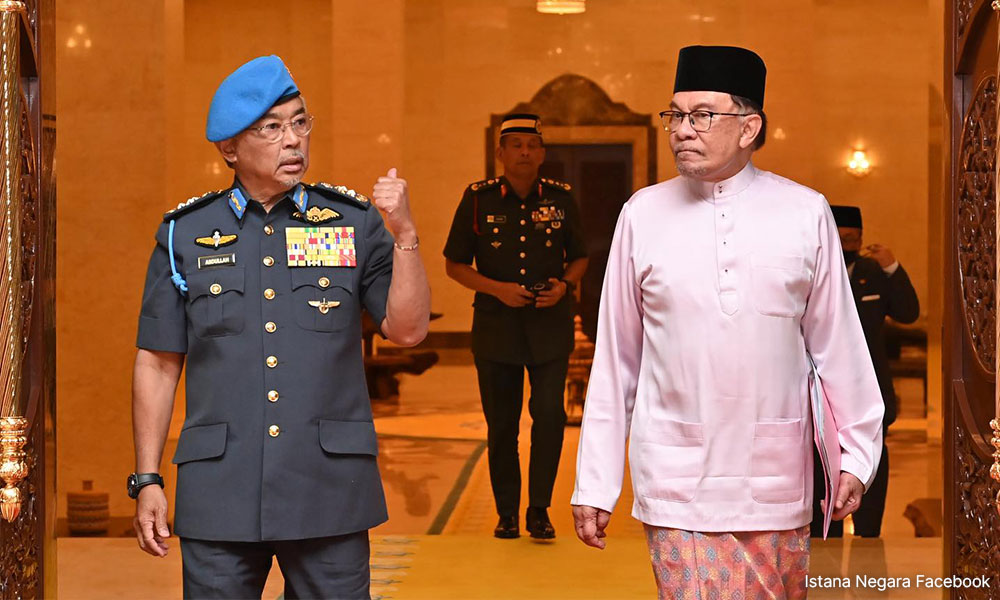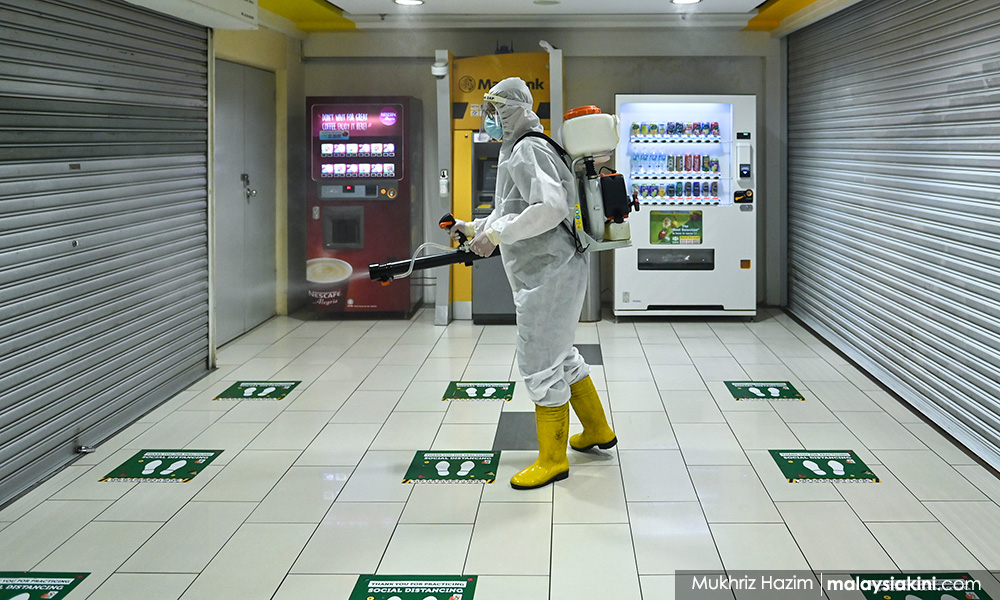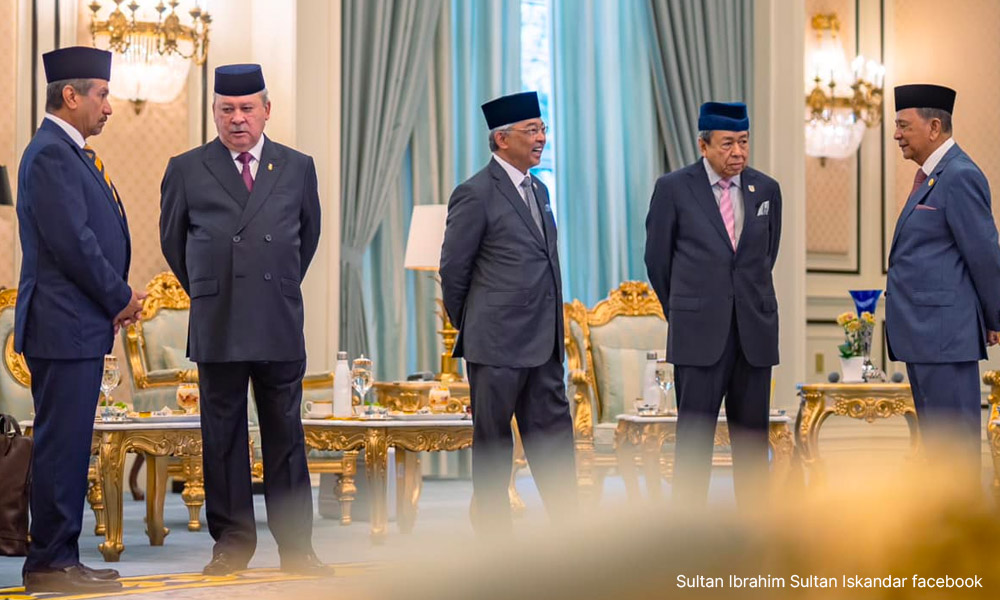As the guardian of the country’s democracy, practised since 1957, the function of the Yang di-Pertuan Agong Institution as the pillar of the nation’s peace and the pulse of unity in the country needs to be maintained and continue to be reinforced, said Yang di-Pertuan Agong Sultan Abdullah Sultan Ahmad Shah.
His Majesty emphasised the significance of fortifying the institution to safeguard the people and the country’s administration, thereby fulfilling the responsibilities and utilising the powers as enshrined in the Federal Constitution.
According to Sultan Abdullah, the institution serves not only as a symbol of unity in the diverse society of the country but also as a platform of hope for the people in addressing the challenges confronting the nation.
"I believe this institution holds great importance for our nation, which is characterised by its multi-racial, multi-religious, and diverse ethnic makeup. It is crucial to maintain and uphold this institution for the benefit of the country and the well-being of future generations.
"If possible, efforts should be directed towards further strengthening it, not by augmenting individual powers. This emphasis is not about any specific individual, including myself, but rather about the institution itself," advised His Majesty
Sultan Abdullah said this during an interview with editors and senior journalists of mainstream media in conjunction with the end of the reign of the 16th Yang di-Pertuan Agong at Istana Negara recently.
The Agong also stated that the role of the institution is not about idolisation but rather about strengthening it, ensuring the system's continuous protection of the people and the administration.
"The Agong serves a five-year term, and upon completion, returns to the state," Sultan Abdullah added.
The interview, conducted in a relaxed manner with the presence of Raja Permaisuri Agong Tunku Azizah Aminah Maimunah Iskandariah, lasted for almost two hours.
Despite the Agong's adherence to the prime minister's advice, His Majesty underscored the crucial role played as the head of state.

His Majesty ensures that the country's administration follows the right path as prescribed by the country's laws and the Federal Constitution.
Sultan Abdullah highlighted the importance of strengthening education at the school level regarding the history and role of the Malay rulers and leaders as outlined in the constitution.
‘Understand your roles’
His Majesty also emphasised the need for harmonious relations between the ruler and the people.
"The rulers also need to understand their roles, as it takes two to tango. I'm not claiming perfection, but I wish to offer advice to myself and fellow rulers on the importance of knowing our roles, being close to the people, understanding their problems, and providing assistance.
“The responsibilities and roles of the rulers are numerous. It is essential to stay connected to the palace and the royal institution. Avoid distancing from them, as they belong to the people,” said Sultan Abdullah.
Concerning the actions of certain parties disrespecting the royal institution and intentionally raising issues related to the 3R (race, religion, royalty) to instigate anxiety in the community, Sultan Abdullah advised the people to always behave with courtesy and maintain decorum when expressing opinions about anything.
"Don't overdo it, there have to be limits. I understand that sometimes there is a feeling of discontentment, but express it appropriately. Avoid defaming others and using abusive language; it is not respectful and does not reflect our culture,” said Sultan Abdullah who was sworn in as the 16th Yang di-Pertuan Agong on Jan 31, 2019.
Reflecting on His Majesty’s five-year reign, Sultan Abdullah faced various challenges and incidents, including the Covid-19 pandemic, which led to the proclamation of a state of emergency and the implementation of the movement control order in the country.

His Majesty's wisdom was also tested by the political turmoil in the country, witnessing the change of four prime ministers, namely Dr Mahathir Mohamad, Muhyiddin Yassin, Ismail Sabri Yaakob, and Anwar Ibrahim.
Conference of Rulers
However, Sultan Abdullah’s firm and calm nature, along with discussions with the Conference of Rulers, allowed His Majesty, who holds a Diploma in International Relations and Diplomacy, to resolve the problems.
"When I took office as Agong, I realised that the appointment was made with the consent of the Conference of Rulers. Therefore, whatever I do, and my actions are on behalf of the Conference of rulers.
"Yes, all decisions are by the Yang di-Pertuan Agong. What I did was to raise (whatever issues to the Conference of Rulers), I consult and discuss, accept their views and suggestions, but the decision of the day comes from the Agong himself," said Sultan Abdullah.
During his five-year reign, Sultan Abdullah held special discussions with the Conference of Rulers three times.

The first took place on Oct 25, 2020, to discuss a proposal by then prime minister Muhyiddin Yassin regarding the proclamation of an emergency under Article 150(1) of the Federal Constitution and the Emergency (Essential Powers) Ordinance 2020 to combat the threat of the Covid-19 pandemic.
The second special discussion of the Conference of Rulers was held on June 16, 2021, focusing on efforts to combat the spread of the Covid-19 pandemic and its implementation during the emergency period.
The third discussion was on Nov 24, 2022, regarding the formation of a new government following the 15th general election which concluded with a hung Parliament, with no party or political coalition securing a majority to form a government.
- Bernama




No comments:
Post a Comment
Note: Only a member of this blog may post a comment.